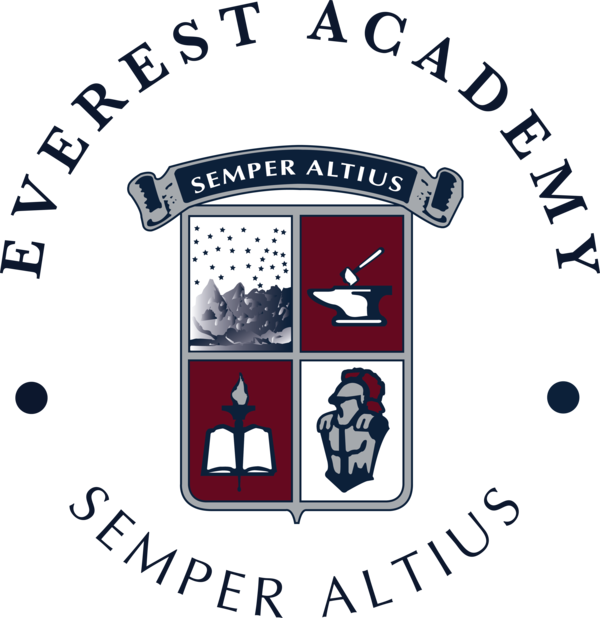Study Skills and Homework
A successful fourth grader will become a self motivated learner by praising him/her for showing initiative towards their studies and homework. They become reliable, responsible and independent. Charity, respect for others and hard work also guide their formation.
Study skills will be reviewed in August and September and reinforced throughout the school year.
Build on previous grade level study skills to help students use their time effectively, and solidify their strengths and overcome their weaknesses.
Stay on task and remain focused on a subject for a period of 40-45 minutes.
Follow daily classroom procedures and routines without getting off task, (transition from one subject to another with success).
Use time wisely by being organized, listening carefully, writing neatly, and following directions exactly.
Answer all questions thoroughly in a complete sentence.
Have all materials for each class; students will store materials in lockers and desks.
Unfinished class work should be finished in addition to homework assignments.
Remember the SQ3R approach for comprehending material: (Survey the main headings, turn the headings into a Question, then Read, Recite the answers to the question and Review).
Write assignments in their assignment book correctly, gather and organize necessary homework materials to take home, and preferably working for self-responsibility without teacher reminders.
Turn in homework on the day it is due. Students are held accountable.
Establish a routine at home as to when and where homework is to be done everyday. All supplies are at hand to minimize distractions and time off-task.
Review math facts, spelling words, wordly wise, Spanish vocabulary, and spend time reading on a daily basis.
Keep a home calendar with important dates and events that apply to school work (due dates, tests, specials, projects, etc); this will assist in learning time management skills and long-term planning.
Keep a standing file folder at home for the student, where important material is kept (subject folders for study guides, graded quizzes and tests, classroom newsletters, special work, information regarding assignments, etc.) for their future review in preparing for tests.
The length of time spent on homework is heavily dependant on the individual child; their ability to focus and their initiative, therefore it is difficult to put a time frame on the task. However, on a typical night, the child may spend 45-60 minutes, plus additional time reviewing math facts and outside reading.
Reading
Students will:
Read fluently with expression.
Apply phonetic and decoding skills in sounding out words.
Learn and effectively apply a variety of reading strategies for comprehension:
Make a mental picture.
Categorize information.
Clarify by asking questions.
Remember critical details.
Identify the purpose.
Sequence the main idea.
Retell in their own words.
Make inferences.
Make predictions.
Draw conclusions, points of view, and author’s purpose.
Focus on the development and mastery of story elements; characters, setting, plot, climax, resolution, cause and effect, compare and contrast, fact or opinion.
Study a variety of genre. These include, but are not limited to: fairy tales, fables, novels, short stories, biographies, poems, and historical fiction.
Memorize selected passages, famous speeches, scripture, and wordly wise definitions.
Determine vice/virtue depicted in the story read and how this applies to their daily life.
Grammar and Creative Writing
Students will:
Write a complete sentence with appropriate subject and predicate, grade level spelling, grammar, punctuation, etc.
Identify the eight parts of speech: nouns, pronouns, verbs, adjectives, adverbs, prepositions, conjunctions, and interjections.
Write neatly in complete sentences and answer questions fully (restate question).
Recognize and use various types of sentences.
Develop a well-written paragraph(s) with a topic sentence and details to support that main idea.
Understand the writing process: prewriting, revision, proofreading, and publishing. Students will use a variety of methods to assist in the writing process, for example, outlining, word webs, and story maps.
Develop and master types of writing including, but not limited to, personal narrative, descriptive and expository, comparison and contrast, cause and effect.
Math
Students will:
Master basic math skills in addition subtraction, multiplication and division.
Add, subtract, multiply and divide (up to six figures) with regrouping.
Add and subtract fractions with like denominators.
Memorize multiplication facts up to the “12”s.
Place value to the millions.
Solve 4 step mental math problems.
Study, practice, and solve equations based on concepts in the 4th grade curriculum (for example: 2-step word problems, finding averages, compare fractions, multiply fractions, find area/ perimeter/ volume, work with decimals and money, probability and ratios, long division.
Specials
Music for 30 minutes, twice per week
Religion
Social studies
Science
Physical education for 45 minutes, twice per week
Art for 45 minutes per week
Spanish for 45 minutes, four times per week

